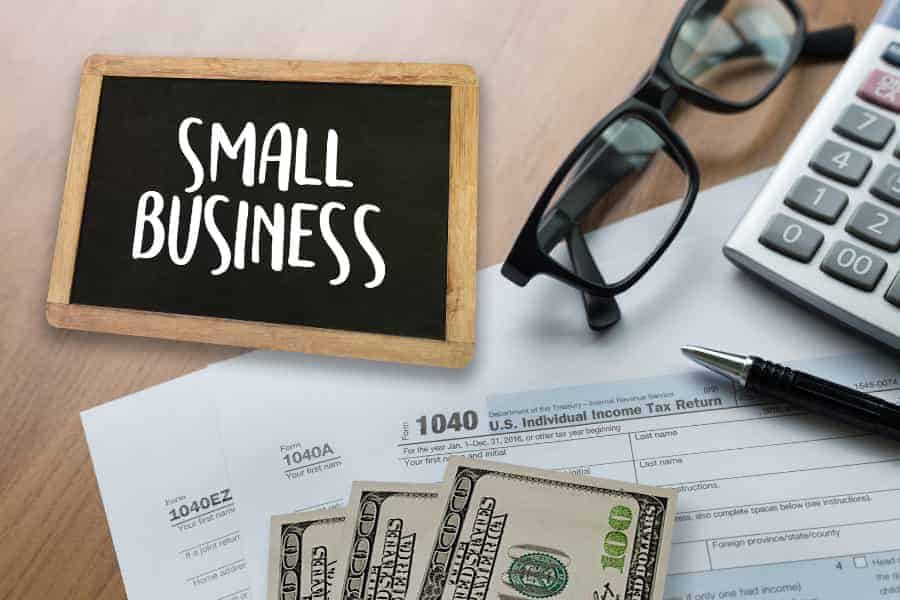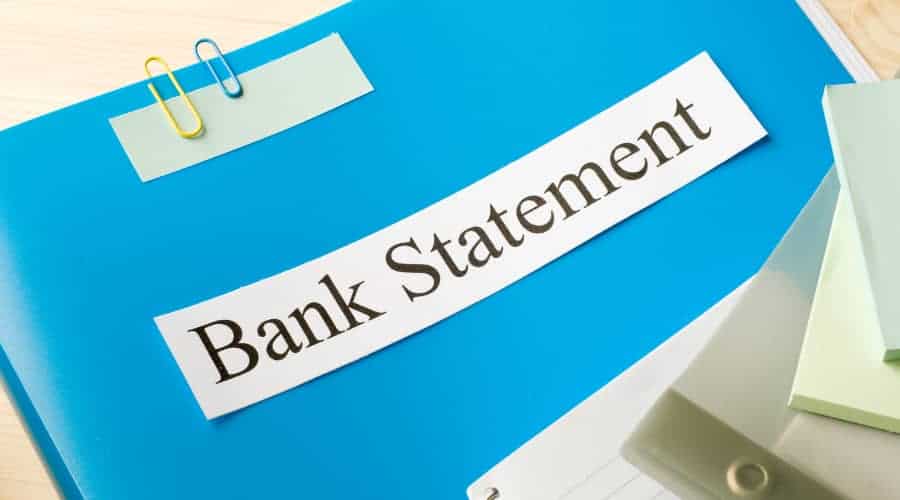Keeping up with government guidelines is highly advisable, whether you are operating your small business as a sole trader or a limited company. Despite the amount of paperwork you may end up storing, should small business owners keep bank statement records even after you’ve submitted your annual tax return?
You should keep bank statements for your UK business for 5 years from the end of the last financial year, if self-employed or a partnership. E.g., for a 2019-2020 tax return submitted January 31, 2021, retain records until January 31, 2026. But limited companies should preserve records for 6 years.
This article covers what you need to do to fulfil HMRC requirements for managing your paperwork, whether you are self-employed, a partnership, or a limited company. Read on to discover everything you need to manage your accounts effectively.
Managing Your UK Bank Statements for HMRC
Keeping abreast of income, expenditures, and assets requires accurate book-keeping, and it pays to keep on the right side of HMRC regulations not least to avoid being fined. Whether you are self-employed, a partnership, or a limited liability company, consider the following factors when assessing what and how to preserve your paperwork.
Calculating How Long To Maintain Your Bank Statements
For self-employed sole-traders and partnerships, HMRC enforces a five-year minimum period for which you must keep your business’ bank statements as part of the yearly tax return starting from January 31, following the tax year after which the tax return is made.
For instance, for your 2019-2020 tax return, the following January 31 falls in 2021. Therefore, you would need to keep UK bank statements and additional records until January 31, 2026, to be compliant.
However, if your accounts are part of an ongoing investigation or if you submitted your tax return late, the minimum time can vary. Defer to additional HMRC guidelines if this is your situation.
Traditional Accounting vs. Cash Basis Accounting
HMRC offers guidelines on two types of accountancy practice that organizations can choose between. These are traditional ‘accruals-based’ accounting or the cash basis accounting methodology. Here’s how the two approaches appear in practice.
Traditional Accounting
Traditional accounting refers to a practice of record-keeping where business owners record income and expenses by the date the business invoiced or was billed by a supplier. The example that HMRC offers is this:
Suppose you, a self-employed individual, issued an invoice on March 28 for the tax year 2019-2020. You document this invoice for this tax period; however, you may not receive payment for the invoice until the end of the tax year cited.
Cash Basis Accounting
If your business is a small business with an income of £150,000 or less, you can use cash basis reporting. With cash basis reporting, you have only to document income or expenditure as and when you either receive money or pay an invoice. Let’s say you have not received cash within your accounting period; then, you are not required, by law, to pay income tax on that money.
In real terms, here’s how this looks. Suppose that you issue an invoice mid-March 2020 yet do not receive the money until after you’ve submitted your tax assessment around the end of April 2021. The income slides to income for your next tax year, 2020-2021.
For further information on whether you are eligible for cash basis reporting, refer to the GOV.UK website for up-to-date information about your particular situation.
Sole Trader, Partnership, or Limited Company
The type of business you run marginally influences how long you should keep your UK business bank statements. We’ll look at this later in more detail; however, if you are a sole-trader or a limited liability company, you must follow unique requirements to maintain your bank statements’ records.
Sole Traders and Partnerships: Additional Details To Log
You must log additional records when operating as either a self-employed sole trader or a partner within a partnership. You can do this either on a computer or via an alternative method of record-keeping.
Sole traders or partnerships must separate personal records from those of your business. Doing this will ensure that, should Her Majesty’s Revenue & Customs (HMRC) request your business records, the documents stand separate from your company’s income and expenditure.

Recording Your Accounts: Sole Traders and Limited Liability Companies
No matter your business model, it’s not only bank statements that you must preserve for HMRC. In the following section, we detail the records you must keep available and up-to-date, whether you’re a sole trader or a limited liability company.
Sole Trader: Required Records
Keeping records is about compiling details of your financial transactions, which come in a variety of forms. HMRC accepts the following types of proof:
- Receipts
- Bank statements and check book stubs
- Invoices, till rolls, and bank slips
You should keep a record of:
- Every sale and all income
- Business expenses
- If VAT registered, all VAT records
- PAYE if you have staff
- Documentation of personal income (i.e., from ISAs or inheritance)
- Any outstanding monies owed
- Amounts you’ve committed to spending but have not paid out
- Year-end bank balances
- How much you’ve invested in your business within the year
- How much money you’ve withdrawn for personal use
Limited Liability Company: Required Records
Here are the details you must maintain as a limited liability company, according to GOV.UK. This information includes:
- Any directors, shareholders, or company secretaries
- Results of shareholder votes and resolutions
- Promises for repayment of loans and who must be paid back
- Any transactions regarding shares bought in the company
- Loans or mortgages secured against assets owned by the company
For accounts, files should also show:
- Monies spent and received
- Assets and debts,
- Stock owned come to the end of the financial year
- Stocktaking processes by which the company deduced its stock figure
- Sale and purchase of all goods within the financial year
- Sources to which products were sold to or purchased from (with the exception of retail businesses)
HMRC emphasizes it is imperative to maintain all financial records, information, and calculations that you may rely upon to prepare and file your company tax return. If you are in any doubt, keep a record of the transaction since it can easily be discarded at a later date if superfluous to the cause.
HMRC’s guidance on how long to preserve your records, including bank statements, is for up to six years from the end of a company’s last financial years. This is true if:
- Records present a transaction that includes more than one of the company’s accounting periods;
- Your company purchased an item anticipated to last more than six years, such as equipment or machinery;
- Issued a late tax return;
- Your company accounts are subject to a compliance check by HMRC.
Consider Accounts Software for Small Business
As HMRC transitions to making tax digital for VAT registered companies (companies with an annual turnover that exceeds £85,000), you could do well by implementing compatible accounting software to keep in line with changes as they occur.

Inadequate Financial Records Incur Penalties
There are penalties of up to £3,000 per year that could be incurred for failure to keep records or for submitting inadequate financial documents. Also, it is generally assumed that inadequate records point to under-declaration of profit, making a company susceptible to being charged with additional penalties.
Diligence is required, therefore, to store one’s business records, irrespective of your status as a sole trader, partner, or limited liability company, for the minimum 6-year period. It also pays to maintain accurate files as a point of habit and good business practice.
Final Thoughts
With software optimised for recording your company’s UK bank balances combined with the information in this resource, you can easily manage your company bank statements and end-of-year tax return. Even if your bookkeeping is simple as a cash flow booklet and keeping receipts and invoices in an easy to locate a file, you can be confident in the knowledge that your company complies with UK regulations.
As always, please remember I am an Accountant, but not your Accountant. In this post (and all of my others) I share information and oftentimes give anecdotes about what has worked well for me. However, I do not know your personal financial situation and so do not offer individual financial advice. If you are unsure of a particular financial subject, please hire a qualified financial advisor to guide you.
This article has been written by Luke Girling, ACA – a qualified Accountant and personal finance enthusiast in the UK. Please visit my ‘About‘ page for more information. To verify my ACA credentials – please search for my name at the ICAEW member finder. To get in touch with questions or ideas for future posts, please comment below or contact me here.

Free accountant advice
We offer the most effective accounting consultation and solutions that can help you achieve the growth and success of your business or personal financial situation. We want to demonstrate quality service by providing free accounting consultations.
We are one of the leading chartered certified accountants in Birmingham. We offer a broad range of tax, accounting, and other services to businesses and individuals.
Our main drive is the lasting image we leave on those we serve, an impression of satisfaction, security, and trust. Let us help take some pressure off you and leave a lasting first impression on your business by scheduling a free accountancy consultation today.
Are you interested in learning more about how our professional chartered certified accountants can assist with safeguarding your future? Contact us at any time and book your free accountant advices to discuss this further.